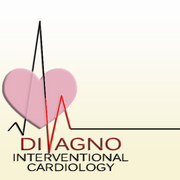Heart Doctors Share 3 Reasons to Reduce Your Salt Intake

While sodium does have many benefits, too much salt in your diet could result in serious health consequences. To protect your body, it’s important to know the daily limit and try not to exceed it. Below, the caring heart doctors at DiVagno Interventional Cardiology, MD, PA, in Rochelle Park, NJ, discuss a few reasons to reduce your intake.
Why Decrease the Salt Content in Your Diet?
1. Raises Blood Pressure
One of the major issues that can occur with a sodium-loaded diet is raised blood pressure. As a result, this can block blood flow and put extra strain on the heart and vessels, increasing a person’s risk of suffering a heart attack or stroke.
2. Weakens the Bones
 Excessive salt decreases the calcium in the bones, which can result in a condition known as osteoporosis. When bone density and quality worsen, they become brittle and weak. In turn, it increases the risk of a fracture. For people over the age of 50, this is especially problematic because the recovery process is more difficult.
Excessive salt decreases the calcium in the bones, which can result in a condition known as osteoporosis. When bone density and quality worsen, they become brittle and weak. In turn, it increases the risk of a fracture. For people over the age of 50, this is especially problematic because the recovery process is more difficult.
3. Causes Obesity
Sodium increases water retention in the body, which puts extra strain on the heart and kidneys. But in addition to water weight, eating salt can make you hungrier, leading you to eat more high-calorie foods and gain weight. Over time, obesity can lead to serious health problems, such as diabetes and heart disease.
Reducing your sodium intake will improve your health and lower the risk of developing a serious condition. When it’s time to schedule your next cardiac screening, turn to the heart doctors at DiVagno Interventional Cardiology, MD, PA, in Rochelle Park, NJ. Their team treats a wide range of conditions, from high cholesterol to heart disease. Give them a call today at (201) 845-3535 to schedule an appointment, or visit their website for more information about the heart doctors and their full list of services.
About the Business


